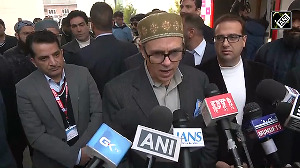This is money available at call, that is, at a moment's notice. If you do not have this provision you need to seriously rethink your money management. This applies to anyone irrespective of whether you are earning or not.
There could not have been a more appropriate time to talk about this subject. The subject of 'contingency planning' is probably one of the most ignored areas of life. The reason it is ignored is because as the name suggests it is based on a contingent events and such contingencies do not happen every now and then.
But when they strike the impact can be severe and the repercussions may last a lifetime. Who knows better than the people of Mumbai who in the recent past have had a bitter tryst with this harsh reality.
Let's understand contingencies better. Everyone knows that contingencies are basically emergencies like accidents or similar mishaps. But there is far more than what is known.
Let's probe deeper. Contingencies do include events like accidents but in totality contingencies tend to include all type of events, where you are in need of immediate cash. It need not be just bad or sad events but includes good events as well. Providing for contingencies is like bridging the in between gap before the funds that we have get liquidated and are available to us.
An easy way to categorise contingent events is by the quantum of cash required. Accordingly the strategy to manage the contingencies tends to differ.
|
Contingency level & definition |
Likely events -- some examples |
Some possible solutions |
|
Elementary or Level 1 Basically defined as events where you are in need of amounts equal to or less than Rs. 25,000 based on your city of residence |
Admission for hospital even if you have mediclaim, sudden requirement of expensive medical tests, impulse purchase of something you like etc. |
-Keep liquid cash -Choose to keep a basic credit card (standard types) with lowest credit limit -Friendly loans
|
|
Moderate or Level 2 You are in need of amounts ranging from Rs 25,000 upwards to about a lakh |
Medical reasons, emergency travel - both domestic and international, breakdown of electronic equipments, loss of job, decision to change city with change of job, unexpected repairs in home or office, unexpected 'payments' in government departments etc. |
-Liquid cash -Personal loans -Credit card with moderate limits like silver cards (medium range) -Friendly loans -Withdraw from fixed deposits -Bank overdraft |
|
Critical or Level 3 You are in need of amounts larger than Rs 1 lakh |
Severe medical reasons for dependents without mediclaim and for self where mediclaim is not applicable, in the face of natural perils, death or long term disablement of earning member, change or new demand by children for purpose of education, cost of legal proceedings and 'payments' if necessary, upward revision of your floating rate house loan which may require you to prepay some amount to nullify the long term impact of higher interest cost etc. |
-Liquid cash -Credit card with very high limits like the gold card variety -Life insurance & associated riders -Mediclaim policies -Accident insurance -FD's or liquid mutual funds -Loan against shares/property or other asset -Sale of jewellery/gold/ |
A word of caution now; please note that prudence always plays a larger role in any financial decision and hence implementing all the solutions mentioned above may not be rational choice.
The solutions are indicative, i.e. there is no reason why a solution for level 3 contingency cannot be used for level 1. The other aspect is of course that of budgets. Having said this, the best way is to have a good base level contingency plan so that multiple contingent events may get managed by implementing one, two or three of the above solutions.
There is no standard rule here -- you must assess your own situation, decide your own preferences and accordingly make your own contingency plan within your overall financial plan. But you must have a contingency plan even if you don't have a financial plan.
I can bet a whole lot that most people have not even thought about contingencies in this detail. This obviously means that we live a pretty high-risk life on one hand and on the other when it comes to our investments we tend to become risk averse. The fact is that things should be the other way around.
Why must we wait for an event to occur, teach us a hard lesson or two so that we then react, why not just be proactive and prepare in advance -- agree?
Kartik Jhaveri, an expert at Financial Planning, is a Certified Financial Planner and a Chartered Wealth Manager. He may be reached at kartikjhaveri@transcend-india.com
Disclaimer: The contents of the above article are the intellectual property and copyright of the author, Kartik Jhaveri. No part may be used or reproduced in any form or manner. If you choose to act upon the information contained in the above article it is at your own risk. This article is purely educative and you are strongly advised to consult an expert prior to taking any significant decision.





